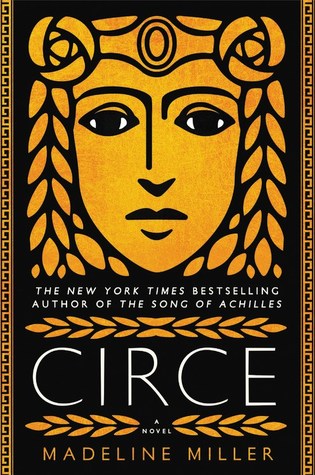Description: In the house of Helios, god of the sun and mightiest of the Titans, a daughter is born. But Circe is a strange child—not powerful, like her father, nor viciously alluring like her mother. Turning to the world of mortals for companionship, she discovers that she does possess power—the power of witchcraft, which can transform rivals into monsters and menace the gods themselves.
Threatened, Zeus banishes her to a deserted island, where she hones her occult craft, tames wild beasts and crosses paths with many of the most famous figures in all of mythology, including the Minotaur, Daedalus and his doomed son Icarus, the murderous Medea, and, of course, wily Odysseus.
But there is danger, too, for a woman who stands alone, and Circe unwittingly draws the wrath of both men and gods, ultimately finding herself pitted against one of the most terrifying and vengeful of the Olympians. To protect what she loves most, Circe must summon all her strength and choose, once and for all, whether she belongs with the gods she is born from, or the mortals she has come to love.
Review: I absolutely loved Miller's debut novel, The Song of Achilles, which is a retelling of Homer's Illiad. Miller had even a fresh voice and allowed me to change my perception of Achilles. Similarly in her next novel, Circe, she returns to Homer and takes a snippet of The Odyssey to give us an unique take on Circe, one of the famous witches in Greek Mythology.
Unlike Achilles, whose fighting skills and passions are renown, there is not much known about Circe except her lineage and her witchcraft which is mentioned briefly in The Odyssey. This gives Miller a lot to play around and lends the book to be more than a retelling but also a coming of age story about a complex female figure who has to fight to make her own place. Circe is the daughter of the sun god Helios and his wife Perse. Though she doesn't have characteristics or abilities of a goddess, Circe's compassion and soft heart often make her the outcast in her family. She stumbles upon her power as a sorceress by accident when she longs to make a mortal companion immortal, but it goes horribly wrong and she is banished to the island of Aeaea. Watching Circe evolve from a quivering nymph to a formidable figure is fascinating. Her isolation at Aeaea allows her to focus on herself and build her own skills in learning about herbs and potions while surrounding herself with lions and wolves as companions. Before reading Circe, I was under the impression that Circe used her witchcraft as an evil person, but this book presents her in a different light. For Circe, witchcraft is a means for survival both for physical protection (where kindness and hospitality to lost mortal men result in rape) and an identity. In fact, Circe is not deceived by Odysseus as we are told by Homer, but she is well aware of his cunning. Circe’s fascination with mortals becomes the book’s central theme. She is well aware of how men work. She makes Hermes and Odysseus her lovers, but not expecting a fairy tale romance. The birth of her son Telegonus and the surprised ending makes me wonder how The Odyssey would be told differently if Homer was a woman. There are different mythologies also told in the book from the creation of Scylla, Daedulus and his tragic son Icarus, the creation of the maze, and the birth of the Minotaur, but the focus and spell of Circe holds the readers attention. A definite read if you are interested in reading Greek Mythology with a feminist bent to the well told epic poems.
Rating: 4 stars
Words of Caution: There is some strong language and violence. Sexual situations are alluded to in the book but not graphically depicted. There is also a rape scene that is mentioned but not graphically described. Recommended for older teens and adults with an interest in Greek Mythology.
If you like this book try: The Penelopiad by Margaret Atwood, Medea by Kerry Greenwood













This does sound good. I have to admit it has been years and years since I read Homer. This would be a good way to revisit it.
I keep trying to like mythology, but for some reason it never sticks for me. I have guilt about it.
I do love mythology of any kind so I think I need to check this one out, it is completely new to me.
Oh this sounds good. I've never been a fan of the classic but I have enjoyed the retellings I come across from time to time. This retelling sounds perfect for me. Brilly review!